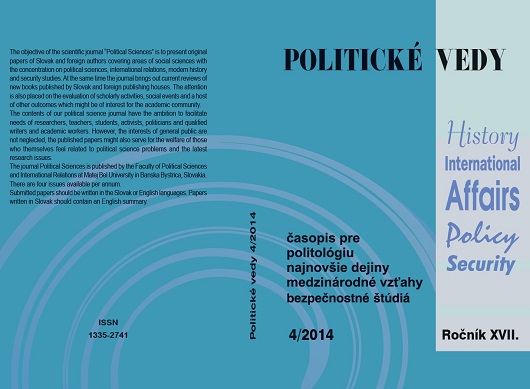Interferences between the Political Cycle and the Business Cycle in the Cases of Slovakia, Romania and the Republic of Moldova: Lessons to be learned
Interferences between the Political Cycle and the Business Cycle in the Cases of Slovakia, Romania and the Republic of Moldova: Lessons to be learned
Author(s): Stanislav Percic, Constantin-Marius ApostoaieSubject(s): Politics / Political Sciences
Published by: Univerzita Mateja Bela
Keywords: cycle; business cycle; political cycle; inflation; unemployment; economic growth
Summary/Abstract: Since the first studies concerning the interferences between the political cycle and the business cycle, authors have provided suggestions with regard to what should be done in order to fight induced electoral instability. This issue is particularly interesting given the fact that the above-mentioned fluctuations exist only in the case of voters: we may thus infer either that the voters are ignorant and allow such fluctuations to occur or that the only criterion applied for voting decisions is the economic one and that voters prefer to have economic wealth in the present, punishing the governments which implement economic policies with average and long term results. This research aims to test the interferences between political cycles and business cycles on the case of three countries: Slovakia, Romania and the Republic of Moldova. The scope is to verify the hypothesis according to which the government prefers an expansionist policy before the elections, resulting in a lower level of taxes and unemployment and contributing, at the same time, to the increase of the consumption per inhabitant, of the GDP and of the subventions granted by the government; this, in turn, is followed by a restrictive policy after the elections. Just like governmental policies depend on the “habits” of the voters, this paper analyses the circumstances in which a non-representative behaviour of the voters may determine the behaviour of the government, with effects on the economy.
Journal: Politické vedy
- Issue Year: 17/2014
- Issue No: 4
- Page Range: 31-53
- Page Count: 23
- Language: English

